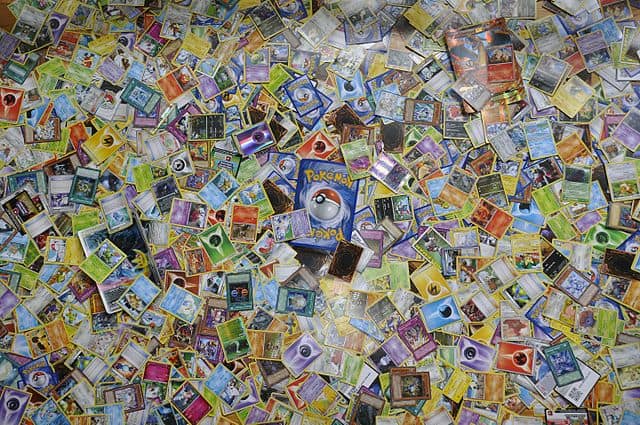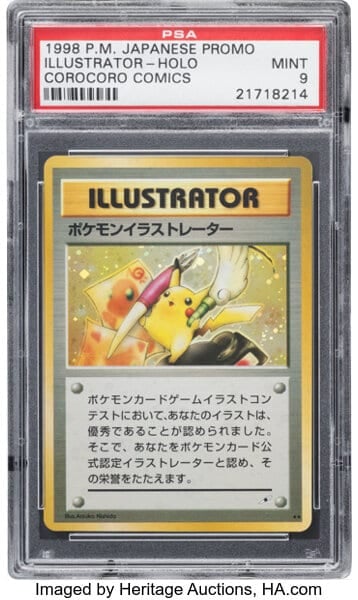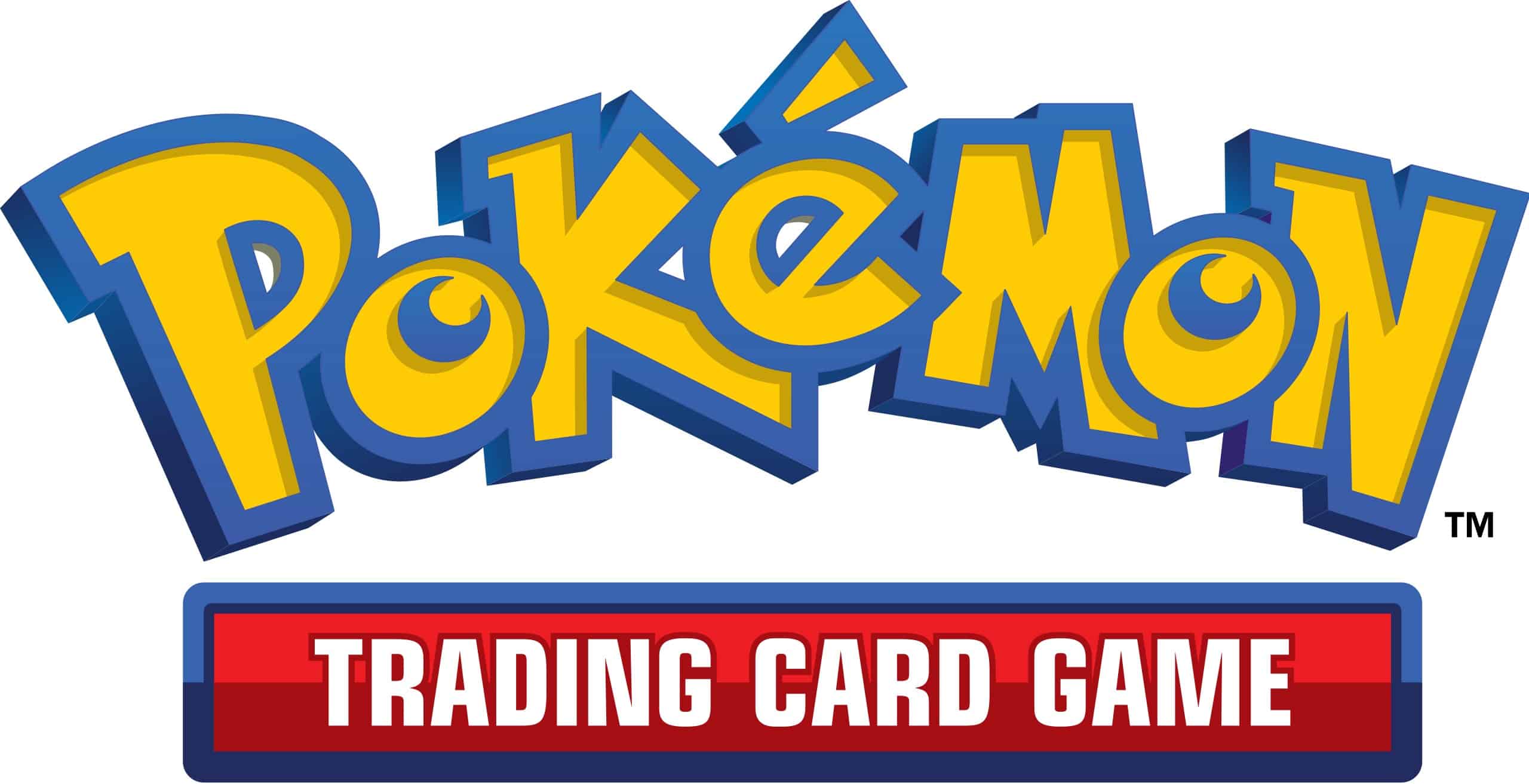For many long-time fans of the Pokémon franchise, the reality of collecting Pokémon trading cards is or was part of their lives at some point in time. For new and old collectors, many of their reasons for trying to complete the Pokédex via cards is the love of the franchise. That said, there are plenty of reasons to hold onto Pokémon cards. While there’s no guarantee that any one card will be worth a significant amount of money, many collectors see Pokémon cards as an investment.
This is a recurring theme for most trading card games (TCG). Collectors obsessively hunt for new cards for the purpose of playing the game, completing the collection, and oftentimes, the value of those cards. It’s not a secret that collectibles gain value over time. This is true for Pokémon cards, Yu-Gi-Oh! cards, Funko POPs, and even vinyl records. For many collectors, it’s less about the love of collecting, and more about the investment.
Not every single item in a collection will increase in value over time. These prices vary due to many different circumstances. First and foremost, the individual item (in this case, Pokémon cards). How rare is it? How many cards did the Pokémon Company make? Are they exclusive? Are they hard to find? What edition is it? Other factors play into an item’s worth, like what the item’s condition is. If it’s mint, it will naturally go for the highest price. For some collectibles to retain value, they need to be in their original packaging. That isn’t so much an issue for Pokémon cards. Collectors need to open Pokémon card packs to obtain the cards. For other collectibles, like Funko POPs, the original packaging rule is more of a staple.
How to Identify the Value of Pokémon Cards

©Jarek Tuszyński / CC BY-SA 4.0 – License
There are some recognizable Pokémon cards, like the PSA 10 Base Set Holo Shadowless Charizard, that are famously worth hundreds of thousands of dollars. The truth is, though, that there are many factors that go into determining a Pokémon card’s value. These factors include the vintage status of the card. Original printings of specific cards will likely be worth more than later reprintings. When it comes to old Pokémon cards, the “shadowless” editions of the cards are almost always guaranteed to increase the cost. While evaluating the card’s worth, experts consider the condition of the card and certain identifiable markers on the card.
Due to all these variables, it can be difficult and overwhelming for the average collector to properly identify the worth of their cards. When getting into cards that are worth thousands of dollars, some sort of service company will need to be involved to authenticate the card. One such company is Professional Sports Authenticator, more commonly known as PSA. PSA specializes in authenticating and grading all types of trading cards.
PSA isn’t the only company online that can help collectors identify their Pokémon card’s value, but it’s a good tool. Not only does it have live services that will help collectors authenticate their pieces, but it also has features like price guides, auction prices, and a registry tool.
Online Tools Collectors Should Take Advantage Of
When trying to determine the value of a collectible, collectors will need to start with research. At the end of the day, they need to understand what they actually have in order to understand its value. Having a holographic Charizard card isn’t enough to make bank. That card needs to fit specific qualifications to be worth thousands.
It’s always a good idea to look at similar items and what they’re selling for when trying to determine a value. Searching platforms like eBay can actually be good for cross-referencing. These reseller platforms are designed to sell collectibles and other items at the highest possible value.
There are plenty of websites online designed to help collectors identify their products and what they’re worth. These sites include:
- Professional Sports Authenticator (PSA) – While this isn’t the only website that will help a collector, it is one of the most recognizable authenticator companies in the world. When searching for the value of expensive and rare cards, it will often say “PSA” in the title, meaning it has been authenticated by PSA.
- Price Charting – This website lets collectors search specific items and collections in order to better understand pricing. This website focuses on helping collectors figure out the current value of new and vintage collectibles.
- TCGPlayer.com – Another website designed to identify specific trading cards and their current value.
- Card Mavin – This website allows collectors to input their card information and immediately get value results. This tool is free to use, making it a great starting point for collectors to see if they really do have something valuable.
- Pokédata – A website specifically designed to catalog Pokémon cards and their worth.
There are many tools online to help collectors identify the value of their cards. These five are just scratching the surface of useful tools. It’s good to keep in mind that cross-referencing multiple platforms can be useful. Don’t assume your card is worth a lot of money because one website said so. It’s also important to remember that if your card could be worth a significant amount of money, in order to back up that claim for resell value or insurance purposes, you’ll need to have it officially authenticated.
Some of the Most Valuable Pokémon Cards Today

Most Pokémon cards aren’t worth much and the reality is, many of them never will be. With thousands of cards in circulation, some of them will be lucky to reach a resell value of $1.00. That said, there are many cards that are worth hundreds and even thousands of dollars. For the rare few that manage to get ahold of such cards, they may have a life-changing amount of money on their hands. Although these are the outliers of Pokémon cards, here are some of the most valuable Pokémon cards on the market.
- PSA 10 Torchic Gold Star Holo EX Team Rocket Returns – PSA has only verified about 17 copies of this card, making it extremely rare. Recently, this card sold in an auction for over $25,000.
- Trophy Pikachu No. 3 Trainer Bronze – There are a few iterations of this card, including the Bronze version, the Gold version, and the Silver version. Each version of this card is relatively rare and worth quite a bit of money, but the Bronze card sold at auction for $300,000.
- Blastoise Wizards of the Coast Presentation Galaxy Star Holo – Wizards of the Coast commissioned this card. Not much is known about it, but there likely aren’t many in circulation. Currently, experts believe that only two of these cards were ever created. The estimated value is well above $350,000.
- PSA 10 Base Set Holo Shadowless Charizard – This Charizard card might be one of the most infamous cards worth a pretty penny. Most casual fans and serious collectors are familiar with this iteration of Charizard and know its worth. Some prints of this card go for tens of thousands of dollars. The really rare versions could be worth even more. Even at auction, where cards tend to sell below their actual value, this card sold for $420,000.
- Illustrator CoroCoro Comics Promo (Pikachu illustrator card) – The most expensive Pokémon card in history. This card was created for the 1998 CoroCoro illustration contest and given out as a prize to the winners. As one of the rarest Pokémon cards ever created, finding one is next to impossible. Many consider it to be the Holy Grail of Pokémon trading cards. In recent years, this card sold for hundreds of thousands of dollars and even millions. In 2021, Steve Aoki purchased one of these cards for $420,000. In 2022, Logan Paul paid over $5 million just to have one.
Needless to say, these Pokémon cards are some of the most valuable cards out there. Most collectors don’t have these cards in their collection, but that doesn’t mean there isn’t some value in their cards.
The image featured at the top of this post is ©The Pokémon Company International, Public domain, via Wikimedia Commons.
